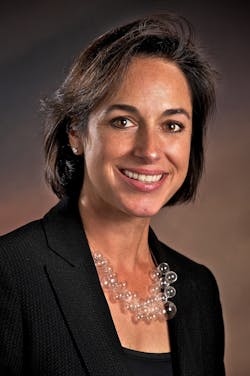Top News
Half of U.S. Physicians to Receive MU Penalties in 2015
Key Takeaway: More than 257,000 eligible professionals (EPs) will receive a 1 percent penalty beginning January 2015 for failure to meet Stage 1 meaningful use (MU) requirements in 2013.
Why it Matters: With roughly half of the nation’s EPs receiving penalties in 2015, concerns are mounting over whether MU is fundamentally flawed or whether the education gap is simply far greater than policymakers expected. Regardless, such widespread failure will affect more advanced providers as they progress to Stage 2, and it portends years of industrywide struggle with program participation.
Headlines across the health IT world converged last week on a statistic that surprised many: 257,000 EPs should expect penalties beginning in January for failure to meet MU Stage 1 in 2013, which is roughly half of all EPs. The response from physician groups was swift. The American Medical Association (AMA) called the numbers “appalling,” the Medical Group Management Association (MGMA) said the numbers suggest an “overly ambitious” program, and (American Association of Family Practitioners (AAFP) executives said they were “very concerned.”
Physicians had until October 2014 to avoid both the 2013-based and 2014-based penalties. And because there is a two-year “look back” on penalties, it is likely that a similar number will be penalized in 2016 as well. Approximately 200 hospitals were subject to similar penalties, the Centers for Medicare and Medicaid Services (CMS) officials noted during a press briefing.
This dynamic has long been expected by CHIME and other provider groups that predicted as far back as May 2013 that large numbers of providers would receive penalties because the program was too difficult and the timelines too tight. However, the focus of CHIME’s efforts was largely on the more difficult Stage 2 requirements. In light of the fact that more than a quarter million EPs received penalties and 55,00 EPs received hardship exceptions, there is growing evidence to suggest the 2015 program year will be even more difficult, particularly because about 260,000 EPs must demonstrate Stage 2 requirements over 365 days.
Legislation & Politics
30 House Members Call on HHS to Grant 90-Day Reporting Period
Key Takeaway: Last week, a bipartisan group of 30 members of the House of Representatives sent a letter to Department of Health and Human Services (HHS) Secretary Sylvia Mathews Burwell requesting immediate action on a 90-day reporting period for attesting to meaningful use in 2015.
Why It Matters: The large number of signatures, gathered during the closing hours of the 113th Congress, indicates increasing visibility among House members that meaningful use is a contentious program. With many of the signatures coming from influential members of the Energy & Commerce or Ways & Means committees, it is likely that the new Congress is poised to take more action through hearings or new legislation.
In the latest example of Congressional oversight, 30 House members, led by Rep. Renee Ellmers (R-NC) and Rep. Jim Matheson (D-UT), signed a letter to Secretary of Health and Human Services, Sylvia Burwell reiterating the need for a 90-day meaningful use reporting period in 2015. CHIME President and CEO, Russ Branzell offered support for the letter, saying, “We are encouraged by the bipartisan letter, signed by 30 members of the House of Representatives, urging Secretary Burwell to take immediate action to shorten the meaningful use program reporting period in 2015. Data released today by CMS, indicating that roughly half of the nation’s physicians will receive penalties in 2015, only validate our calls for increased program flexibility. CHIME applauds the leadership Rep. Renee Ellmers (R-NC) and Rep. Jim Matheson (D-UT) have shown on this important bipartisan issue and are pleased their colleagues recognize how essential Meaningful Use is in the modernization of the nation’s healthcare delivery system.”
Also introduced by Reps. Ellmers and Matheson, the Flexibility in Health IT Reporting Act or “Flex-IT Act” accumulated 22 cosponsors during the 113th Congress. The bill, introduced on Sept. 16, would maintain a 90-day reporting period in 2015. CHIME’s advocacy initiatives will remain steadfast and continue to look to members for guidance and involvement when Congress returns on Jan. 6, 2015.
New House Oversight Subcommittee to Focus on Technology
Key Takeaway: According to Rep. Jason Chaffetz (R-IA), the House Oversight and Government Reform Committee will have an Information Technology subcommittee.
Why it Matters: A new subcommittee dedicated to IT oversight will set the guardrails for a host of hearings meant to scrutinize Obama administration technology policies and programs, including Meaningful Use.
Rep. Chaffetz will take over as chair of the House Oversight and Government Reform Committee in the 114th Congress. As chair, news reports last week said he will establish a subcommittee for Information Technology, which will focus on federal IT procurement, intellectual property, cybersecurity, IT infrastructure and "emerging technology," an aide told Politico.
Rep. Chaffetz was a signatory to last week’s letter to HHS Secretary Burwell, demonstrating knowledge of and interest in health IT policy. The Senate has held a few hearings on health IT and Meaningful Use in the past few years, and many expect multiple hearings in 2015.


